Why Do I Need A Brand? I’ve Got A Great Product and a Logo
Why do I need a brand?
Good question! It’s one we’re often asked because it seems that somewhere along the way, ‘brand’, ‘logo’ and ‘branding’ became confused.
It’s critical to understand that branding is NOT marketing or design but the bedrock strategy supporting and directing your whole business so your brand strategy is fundamental to your business’s success, longevity and ongoing profitability.
Strategically-minded business managers realize that to create a properly valued brand, they must present customers with emotionally based, engaging, and compelling brand experiences that go beyond the service or product on the shelf.
Why Do I Need a Brand? Because Brands Add Value
It’s worth pointing out that a brand adds real value….now and in the future.
Dave Bookbinder, Director of Valuation Services at EisnerAmper, writes, “Like most things in valuation, the value of a brand is a forward-looking exercise, where the value of the asset today is equal to the present value of the asset’s cash flows in the future. In the case of a brand, the ‘cash flows’ are typically sales.” [1]
A brand adds asset value beyond tangible assets such as inventory, machinery, buildings, and land. Intangible assets are valued as intellectual property.
According to Investopedia, “…A company’s brand can be one of its most valuable assets. Brand value is intangible, making it difficult to quantify, but common approaches take into account the cost it would take to build a similar brand, the cost of royalties to use a brand name, and cash flow of comparative unbranded businesses.
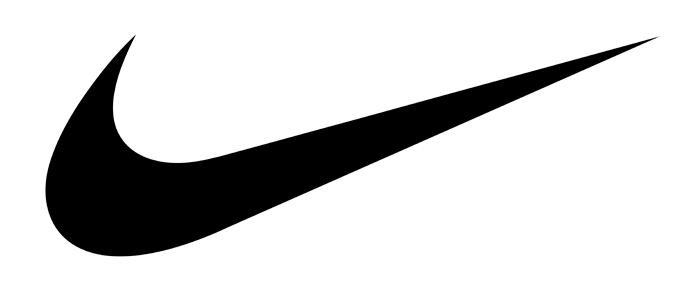
Image via Wikimedia Commons
Nike Inc., for example, owns one of the world’s most instantly recognizable logos, the “swoosh.” Forbes estimated Nike’s brand to be worth $29.6 billion in 2017, despite that fact that – in a world devoid of brand perception – taking the swoosh off Nike’s shoes and apparel would change nothing about their comfort or boost to athletes’ performance.” [2]
Brand Action Points for Entrepreneurs and Business Owners Who Are Questioning ‘Why Do I Need A Brand?’
Step 1: Once you go from having an idea to creating a product or service, you must also create your branding, aligned with your business strategy. This is what provides direction for all marketing, communications and design, both internally within the business itself and also on the customer-facing front. (Note: design alone is NOT branding!)
In fact, a product or service is merely a generic entity until it is given meaning in people’s minds—through a brand.
Step 2: Build your brand using the brand codification process—mapping out your brand strategically to attract your ideal customers. As with any plan, it’s important to look down the road ahead.
We’re all busy so building the bedrock brand strategy supporting and directing your whole business to ensure it’s growth and sustained longevity may not be your top skillset. If you’d like professional branding input and want access to a detailed overview of what’s key in the brand strategy context to grow your business then get in touch? Alternatively book one of our transformational workshops, brand building intensives or masterclasses.
The Persona Brand Building Blueprint™ Mastermind empowers you to build your brand strategy, raise the visibility of your brand, increase profitability, reduce customer acquisition costs and position your brand as the №1 choice for your customers.
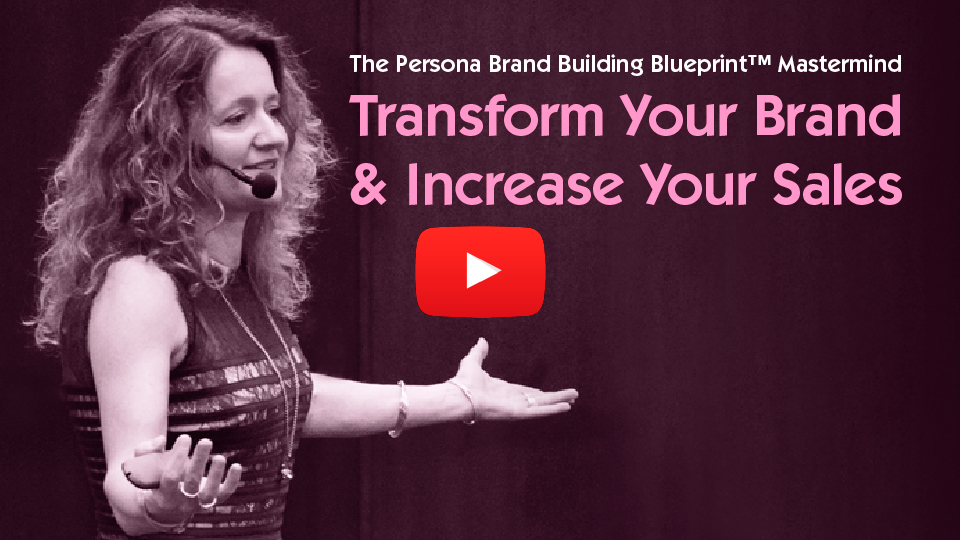
Build your standout brand at the Persona Brand Building Blueprint™ Mastermind with Lorraine Carter
Related: Design is Not Branding, 10 Things Every Business Owner and Entrepreneur Should Know
Creating a Brand…and Everything That Embraces
Your brand needs to be thinking with its heart because emotion wins the battle for a customer’s wallet.
Branding involves a wide range of fundamental concepts. Most importantly, your brand is the cornerstone and foundation that your business is built upon.
Watch: “What is Branding?”
Related: Use Psychology in Your Brand Strategy to Create Irresistible Brand Experiences and Increase Sales
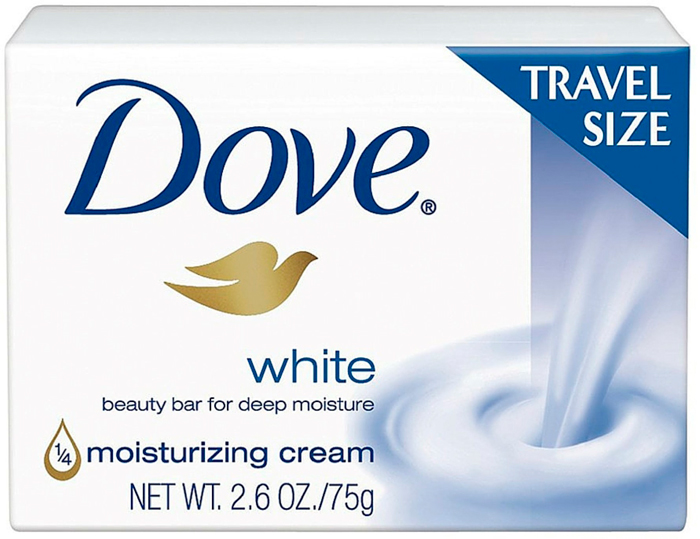
Image via Wikimedia Commons
Think about Dove soap. There’s really nothing inspiring about a bar of soap to wash your hands and face; wouldn’t any inexpensive no-name product do the job? Yet, Dove sells more $4 billion worth of soap around inspirational brand pillars such as “Real Beauty.”

Image via Patagonia
Think about Patagonia. They make jackets for outdoor activities to keep you warm, amongst other things. However, what’s a key factor in driving increased sales? A brand foundation promising to protect the environment, fight global warming, keep their carbon footprint to a minimum and do minimal damage to the planet while making the products their customers love. This mission is central to the Patagonia brand foundations and consequently attracts customers with similarly aligned values. Their continuous endeavours and brand activism are what also help maintain customer loyalty and referral amongst a like-minded community.
Note that just because something exists or can be found on the shelf doesn’t make it a brand; ‘enhancing’ it by slapping on a logo doesn’t create a brand either. Therefore:
- A logo is an identification via a recognizable mark or symbol.
- A brand is the emotional experience someone feels when they interact with a product or service because emotion drives purchase.
Remember: A brand on its own is not a logo.Your logo is merely your visual identifier, not your brand. |
When we think of a logo as the ID card in your wallet, there’s no confusion about the role it plays—and cannot play—when compared to the actual individual it represents.

Image via Wikimedia Commons
A brand is required to identify the unique experience your product or service delivers and its key points of distinction from the competition.
Related: Top 10 Brands for Customer Experience and What You Can Learn From Them
Why Do I Need A Brand? Because It’s The Entity Through Which You Articulate Your Brand Positioning and Messaging To Attract Your Ideal Customers
The important considerations are:
- Whether or not your brand has a foundation to underpin the bedrock of your business
- What exactly are the pillars of that foundation supporting your business and,
- How is it communicated?
Looking a bit deeper, to ensure the clarity of a brand, the real questions are:
- What does your brand stand for?
- What does your brand promise to new and existing customers?
- What’s your brand for?
- What problem does your brand solve?
- How is your brand different?
- How does your brand make people feel?
If you think you might benefit from some professional assistance in building your brand, take a look at our popular “Brand Building Workshops.” Feel free to get in touch. |
Why Do I Need A Brand?
10 Reasons Why Branding is a Must-Have
A brand is the mark of ownership and a symbol of its guarantee. A brand is not anonymous, it doesn’t hide behind a no-name white label, because:
- Branding creates customer emotion, connection and experiences
- Branding defines expectations
- Branding makes and consistently fulfils a promise
- Branding promotes recognition and recall
- Branding reveals your DNA, the essence on which your whole distinct offering is built
- Branding carves a standout position for your brand, product or service, in the market with its own unique selling points
- Branding tells your distinctly compelling story
- Branding attracts your ‘dream team’ and cultivates a positive internal culture
- Branding generates word-of-mouth referral and cultivates brand ambassadors, inherent champions of your brand
- Branding creates value and drives sales growth
Related: Brand Sponsorships, The Best Brand Ambassadors Are Already On Your Payroll
In this video, Hallmark Business Connections explains why connecting with customers through empathy is critical.
Why Do I Need A Brand? Because When the Bottle is Empty There is NO Brand, No Underlying Asset Value, No Longevity, No Premium Price Points
If the vision for your brand is not centred in a rich emotional connection with customers your brand may be visible, but it will lack personality. But a brand without personality is a brand without a soul — it’s just an empty container. As such, it fails to resonate and it cannot stimulate a purchase, no less a repeat purchase or ongoing growth.
Related: Personality Matters: Bringing Your Brand to Life to Grow Profits
Branding is the core DNA of your company – what makes it tick, the driving purpose behind everything you do and how you express your stand out brand personality at every touch point to engage your customers emotionally. Branding is the glue between your business and your customers.
Why Do I Need A Brand? Because branding is the Secret Sauce That Sells
We can agree broadly that:
- Cola is a refreshing drink
- Aspirin relieves a headache
- Cologne smells nice
Which one of these soft drinks would most people reach for on a grocery shelf? And why?
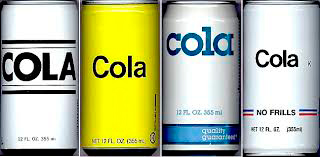
Image via Wikimedia Commons
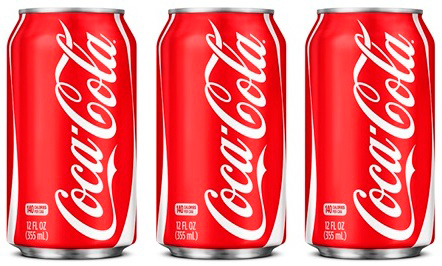
Image via The Coca-Cola Company
Which one of these pain relievers do most people reach for? And why?

Image via Columbia University Medical Centre
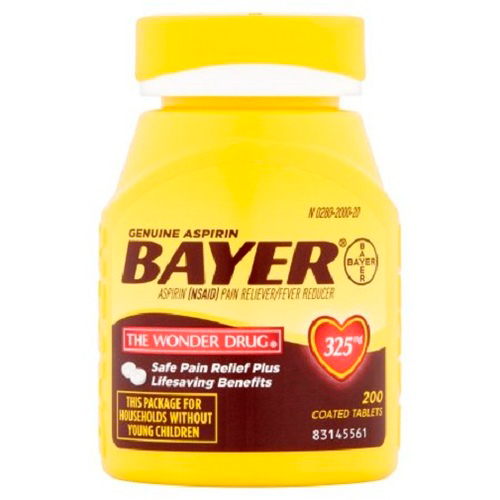
Image via Walmart
Or given the choice which one of these perfumes would most people prefer? And why?

Image via Wikimedia Commons

Image via Wikimedia Commons
Or insurance brokers?

Image via Wikimedia Commons

Image via Allstate Insurance
Related: 8 Huge Branding Trends in 2018, What’s New and Valuable?
The Un-Branded Generics
Cola, aspirin, cologne, and insurance are all useful consumer products. But none can stand on its own without communicating as a brand. A generic cola, aspirin, cologne and insurer lack the critical emotional factors that underpin and drive customer purchasing behaviour.
Nonetheless, the no-label packaging delivers a message in itself…if you’re thinking cheap lower price, you’re correct. A lower price is an excellent example of brand differentiation. However, pricing on its own is just one aspect of brand building and a race to the bottom unless you have very deep pockets and a very large mass market, high volume sales strategy.
To survive, grow and thrive, every brand needs an identity—and that is so much more than just a design, logo, and packaging. Here’s what is still missing so that your B2B or B2C product or service strongly stands out and resonates with your ideal customers, attracting them to purchase.
- Brand mission
- Brand meaning
- Brand values
- Brand positioning
- Brand personality
- Brand promise
- Brand story
- Brand purchaser personas
- Brand hierarchy structures
Do you want to make your brand stand out as a highly recognised, memorable and much-loved name? The Personality Profile Performer™ System is the perfect on-demand solution for you because it’s a step-by-step process empowering you to build your brand yourself and become more profitable. Get the Personality Profile Performer™ Programme here now so you can make your brand No.1 in your market. Discover more here.
Related: Brand Profiling, How Brand Performance and Purpose Are Inextricably Linked
Why Do I Need A Brand? How A Great Product or Service Delivers Via Branding
In the consumer product and service illustrations above, the branded products “talk” to us. There’s an emotional connection that goes way beyond the packaging. We feel we trust these brands and “know” them…and that our parents did, too.
Strong branding is underpinned by a compelling mission statement that defines the company’s purpose and standards. Examples as follows:

Image via Wikimedia Commons
- To refresh the world…
- To inspire moments of optimism and happiness…
- To create value and make a difference.
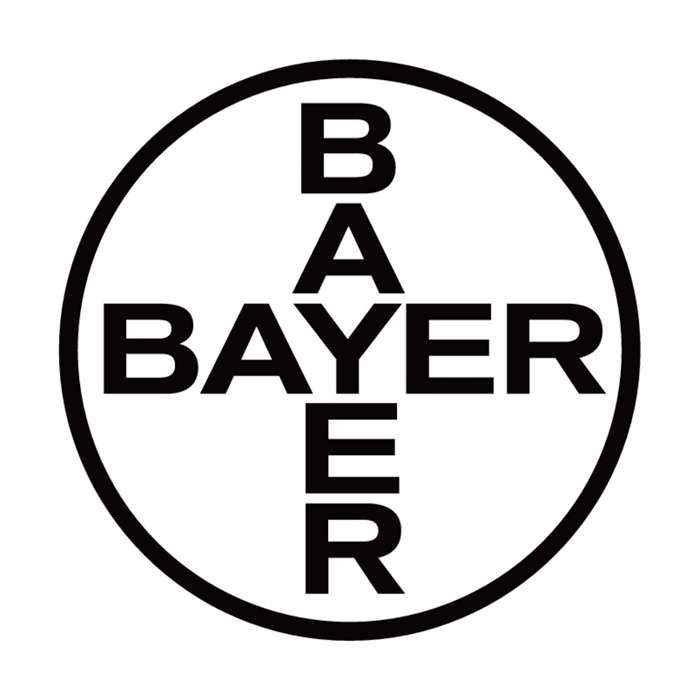
Image via Wikimedia Commons
Science for a Better Life

Image via Wikimedia Commons
“To be the Ultimate House of Luxury, defining style and creating desire,
now and forever.”

Image via Allstate Insurance
“To be the best…serving our customers by providing peace of mind and enriching their quality of life through our partnership in the management of the risks they face.”
Look closely at the logo for Allstate insurance. It symbolizes the tagline introduced in 1950 and in use ever since: “You’re in good hands with Allstate.” That’s a brand promise everyone can relate to.
Yet branding is so much more than just a mission statement or tagline. The answer to the question, “Do I need a brand or a visual identity?” is “Yes and yes to both.”
Small, Medium and Large Brands Matter
Size doesn’t matter. (Hint: But delightful customer experiences do matter.)
“Good stories give big voices to small ventures,” says digital marketing professional Neil Patel.[3]
At Persona Branding and Design, our mission is to empower business leaders, business owners and entrepreneurs to build their brands. And in working across multiple sectors with leaders in different countries around the world we sometimes hear misconceptions like this one: “Big names spend money on branding, small companies just get on with the job.”
Whether your team is in tech, retail, consumer goods, construction, professional services or another sector, your brand is your voice and it speaks for everything you do; your reputation depends on it.
In fact, your brand is your reputation. Jeff Bezos (founder of Amazon) says it is what people say about you when you are not in the room so your brand is essentially what people think and feel when they see or hear your name, engage with somebody from the organisation who in effect represents your brand and the experience that entails in meeting and exceeding your needs — or falling short!
All Brands Start Out Small
All products and services need a “why.”
For two Airbnb founders in 2008, that “why” was a need for cash which they met by renting out an air mattress on the floor of their apartment to two strangers who couldn’t get a hotel room during a big San Francisco design convention. Crazy idea?
Watch: The Story No One Believed – Brian Chesky, Co-Founder and CEO AirBnB
It has to start somewhere. The living room floor, a garage in Silicon Valley, or the back of a napkin in a coffee shop—like Harry Potter author JK Rowling— is as good a place as any for ideation.
Related: 10 Branding Tips From Silicon Valley on How to Be a Successful Startup Brand
Unicorns, those rare startups valued at over $1 billion USD (like Uber, Spotify, Airbnb), evolved from ideas to hugely successful global brands. Airbnb’s mid-2017 valuation was $31 billion USD.)
Related: Brand Disruption, Be the Disruptor or Be Defeated
“Unicorns often start as a brilliant technology solution to an unmet consumer need or they purposefully or inadvertently tap into a changing consumer trend,” counsels Kantar Millward Brown in their BrandZ annual report.[4]
Related: From Zero to Hero, How to Become a Must-Have Brand
Online and Offline Branding
As a small business owner or manager, you know that your community presence is far more important than it is for big brands that can rely more heavily on larger advertising budgets.
You may have a consumer-facing bricks and mortar establishment, you may trade as a B2B, or you may run a small internet business. Either way, you know how important a vibrant community, on and offline, together with word of mouth is.
Small businesses have lots of opportunities to connect with customers, building a strong brand through online and offline communities. And through their employees, too.
Related: The Age of Internal Branding and Selling It From the Inside Out
Having a great product or service is only the first step in the lifetime journey of your brand. Don’t stop the nurturing that brings your brand to life and enables it to grow.
As you can see, a brand is much more than a logo or just design. To build your standout, highly profitable brand, join one of our transformational workshops and masterclasses. These workshops are packed with content that enables you to define, articulate, and differentiate your brand, as well as put the latest branding trends to use for growing your business. Check out the Persona Brand Building Blueprint™ Mastermind here.
If you want some professional input, feel free to get in touch.
Questions To Consider — in Addition to “Why Do I Need A Brand?”
Ask yourself a few key questions about your product or service and the brand representing it.
- Does your product or service deliver an emotionally rich customer experience via its brand?
- If so, how does your brand use humour, hope, empathy, or another deeper connection to reach customers?
- Does your brand have unique attributes to set it aside from others in its segment?
- Does your brand answer the “why” question at its very core?
- Is your customer-facing team comfortable communicating your brand’s purpose?
[1] https://www.huffingtonpost.com/dave-bookbinder/what-is-a-brand-worth_b_9991720.html
[2] https://www.investopedia.com/terms/b/brand-identity.asp
[3] https://www.quicksprout.com/the-beginners-guide-to-onl
[4] http://www.millwardbrown.com/brandz/top-global-brands/2017/thought-leadership
If you’re looking for a DIY solution to build your standout brand, our Personality Profile Performer™Programme is the perfect solution for you because it empowers you to build a vibrant brand and inject it with meaning and purpose to drive customer purchase, all based on the latest developments in the branding industry. Discover more here.

Start building your standout, highly visible brand now with Lorraine Carter here





Leave a Reply
Want to join the discussion?Feel free to contribute!